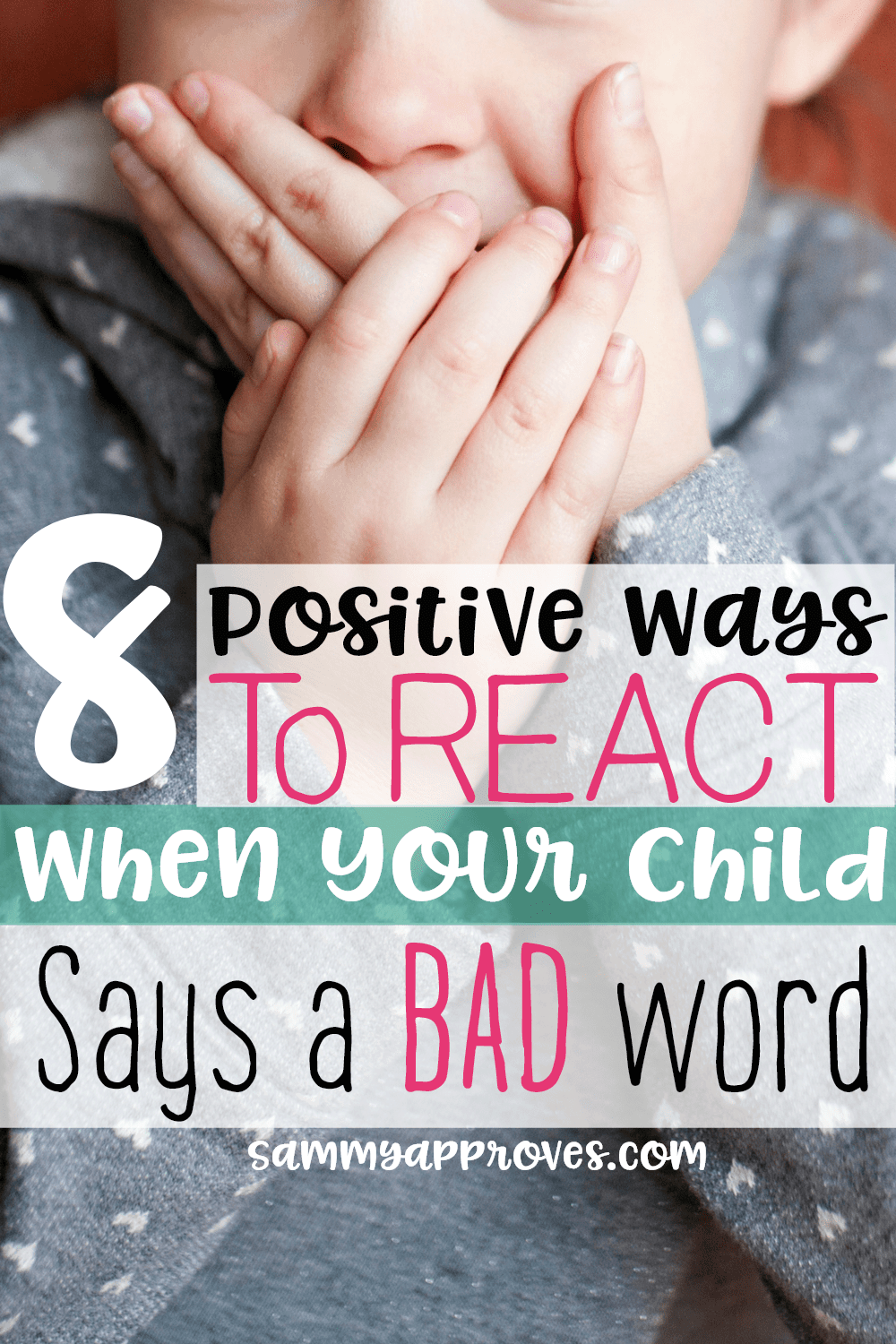How do you react when your sweet innocent child says a bad word for the first time?
If you’re like me and don’t curse, then your child saying a bad word will probably come as a shock to you.
This is something that can and probably will happen to all parents on this journey of raising respectful kids. Once the naughty word has been spoken you can’t turn back time, you have to deal with it.
The best thing to do if this happens is to stay calm and positive while using it as a teaching moment to educate your kids on using appropriate and inappropriate language.

I’m sure you don’t want your little ones newly learned curse word to become part of their daily vocabulary. It probably wouldn’t go over very well if they repeated this word to their teachers, grandparents, neighbors, or at church.
Luckily, this isn’t a bridge I’ve had to cross as a parent yet. However, it’s something I’ve been thinking about because as a parent I like to be prepared for dealing with situations.
When or if this does happen I want to react in a positive way. In a way that not only teaches them to change the behavior, but to see a good example of how to react under stress.
What do you do when your child curses?
Stay Calm – Your gut instinct may be to get angry, emotional, or even panic. But, you have to stay calm!Just because your little one cursed doesn’t mean it’s your fault. They could have heard this word at school, while traveling, on TV, or from a outspoken family member or friend.
Our little ones are exposed to so much. Especially with digital devices and media readily available in today’s world- Ask where they heard it
Ask your child where they heard it, so you can further assess how to handle the situation. If you approach the situation calmly and at their level they will be more open to having conversation with you about it.
It’s good if you have established healthy family communication already, so your kids feel comfortable about talking through things that are difficult to talk about. - Have a family talk
Talk with your little one about why you don’t want them using that word. You should explain to them that sometimes people use bad language, but that it’s against your rules. I would definitely tailor this conversation to your families needs and rules about cursing.
Your child needs to have clear expectations from you as to what is expected of them. Set clear consequences for what will happen if they repeat this behavior. - Suggest alternative words
If it continues to be a problem you may want to calmly redirect and teach them things that are okay to say.
Words like dang it or darn… Maybe you make up a silly word that’s unique to them.
Explain to your kids that sometimes people feel they need a special word to say when they get hurt or are frustrated. We just need to make sure it’s not offensive to others. - Give positive reinforcement
Make sure you let your child know when they are saying the correct words to show their frustration or hurt. Give lots of positive reinforcement and praise, so they will continue using the appropriate words.
- Show an increase of love
Your child may feel really bad and remorseful that they said a bad word. Make sure you show lots of love after your discussion and let them know it was just a mistake. Chances are they didn’t even know it was a bad word after all.
You don’t want your child to feel shamed for making a mistake. They need to know that they are still loved and important. Just like us, kids aren’t perfect. You’ll see them make mistakes and need to be beside them loving them the whole way through. - Assess your child’s environment
What if your child heard the curse word at home? In this case make sure to assess your home environment.
First make sure that you as parents are always modeling the type of language you want to be spoken. Make sure older siblings clearly know the rules when it comes to cursing.
Also, look to see if the type of television programming you are watching has bad language your child may overhear. These days even commercials can contain bad language, so you have to be extra careful!
If a babysitter, family member, or friend is modeling this language, politely ask them to stop. Explain to them that your child is picking up on this language and you aren’t okay with that. - Clearly post household rules
Clearly post the rules on a dry erase board or print out where your little ones can see them. Go over these rules with your children often so they clearly know what is expected of them.
You can change these rules as your child gets older to be more appropriate.




Leave a Reply